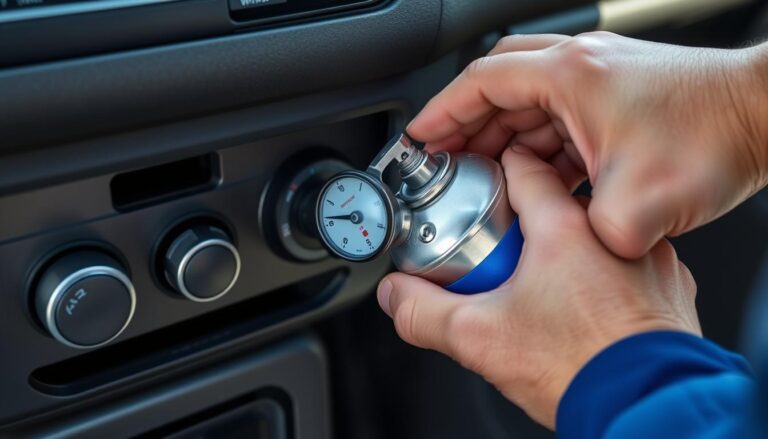The main difference between a 305 and a 350 engine is the size. The 305 engine has a smaller displacement than the 350 engine.
Car enthusiasts and mechanics often debate the differences between various engine sizes. One of the most common debates is between the 305 and 350 engines. Despite both being small-block v8 engines from general motors, they have notable differences in displacement, power output, and fuel economy.
The 305 has a displacement of 5. 0 liters (305 cubic inches), while the 350 has a displacement of 5. 7 liters (350 cubic inches). This difference in size leads to variations in horsepower and torque ratings, as well as fuel efficiency. Understanding the distinctions between these two engines can help car enthusiasts to make informed decisions when purchasing or modifying a vehicle.
What Are The Key Differences Between The 305 And 350 Engines?
305 and 350 engines differ in size, output power, torque and cost. The 305 is smaller than the 350 and is best suited for light-duty applications. It has a lower horsepower and torque output but also has a better fuel economy.
The 350, on the other hand, is ideal for larger applications. It has higher horsepower and torque output, but its fuel economy is relatively poor. The cost of the 350 is also higher than the 305. Choosing the right engine depends on the intended use and budget.
For instance, the 305 may be the better engine for a daily driver, while the 350 may be better-suited for heavy-duty work tasks. Overall, understanding the key differences between these engines can help car enthusiasts, mechanics and buyers to make informed decisions.
Advantages Of The 305 Engine
The 305 engine offers several benefits and advantages over the 350 engine. Its smaller size means it weighs less, which leads to improved fuel efficiency and cost savings over time. Additionally, the 305 engine is a solid choice for applications that don’t require as much raw power as the 350 engine provides.
Examples include smaller vehicles like sedans or light-duty trucks. Another advantage of the 305 engine is its ease of maintenance, which can save owners time and money. Finally, the 305 engine is also a popular option for those who value a smoother ride, as its smaller size leads to less engine noise and vibrations.
Overall, the 305 engine is a strong option for those looking for a balance of cost savings, efficiency, and performance in their engine choice.
Advantages Of The 350 Engine
The 350 engine offers a host of advantages over its 305 counterpart. With greater horsepower and torque, the 350 engine is the top choice for applications that require a more powerful engine. It offers better acceleration and top speed, making it the preferred choice for performance enthusiasts.
Whether you need an engine for racing, hauling heavy loads, or just want a more powerful engine for your daily driver, the 350 engine is the ideal choice. Additionally, its compatibility with a wide range of aftermarket parts and accessories make it easy to customize and upgrade.
All in all, the 350 engine delivers reliable performance, versatility, and durability – making it a popular choice among car enthusiasts and mechanics alike.
Real World Usage Examples
305 and 350 engines are both popular choices for different applications. The 305 is often used in light-duty trucks and passenger cars, as it is efficient and provides a good balance of power and fuel economy. On the other hand, the 350 is more commonly found in larger vehicles like heavy-duty trucks and suvs, as it offers more power and torque to handle bigger loads.
A boat or rv may also utilize the 350 engine due to its suitability for long-distance travel. Ultimately, the choice between the two will depend on the specific needs of the application. While the 305 can provide ample power for most uses, the 350 may be necessary for large, heavy vehicles or for those needing to pull heavy loads.
Frequently Asked Questions For Difference Between 305 And 350
What Is The Difference Between 305 And 350 Engines?
305 and 350 engines are different in terms of power output and engine block size.
Can A 305 Engine Be Replaced With A 350 Engine?
Yes, a 305 engine can be replaced with a 350 engine provided that the necessary modifications are made.
Which Engine Is Better, 305 Or 350?
The answer depends on your needs. The 305 engine is less powerful but offers better gas mileage while the 350 engine has more power but lower gas mileage.
Conclusion
After exploring the key differences between the 305 and 350 engines, it is clear that both have their own unique strengths and weaknesses. The 305 is a good choice for those seeking a fuel-efficient engine that is ideal for low-speed street driving.
On the other hand, the 350 is a more powerful engine that offers improved torque and better acceleration performance. At the end of the day, the decision to choose one engine over the other will depend on the specific needs of each individual driver.
It’s important to remember that choosing the right engine is only the beginning of the process. Regular maintenance, proper tuning, and careful driving will all play important roles in ensuring the longevity and efficiency of your engine. We hope that this guide has helped you better understand the differences between the 305 and 350 engines, and choose the right engine for your vehicle!


